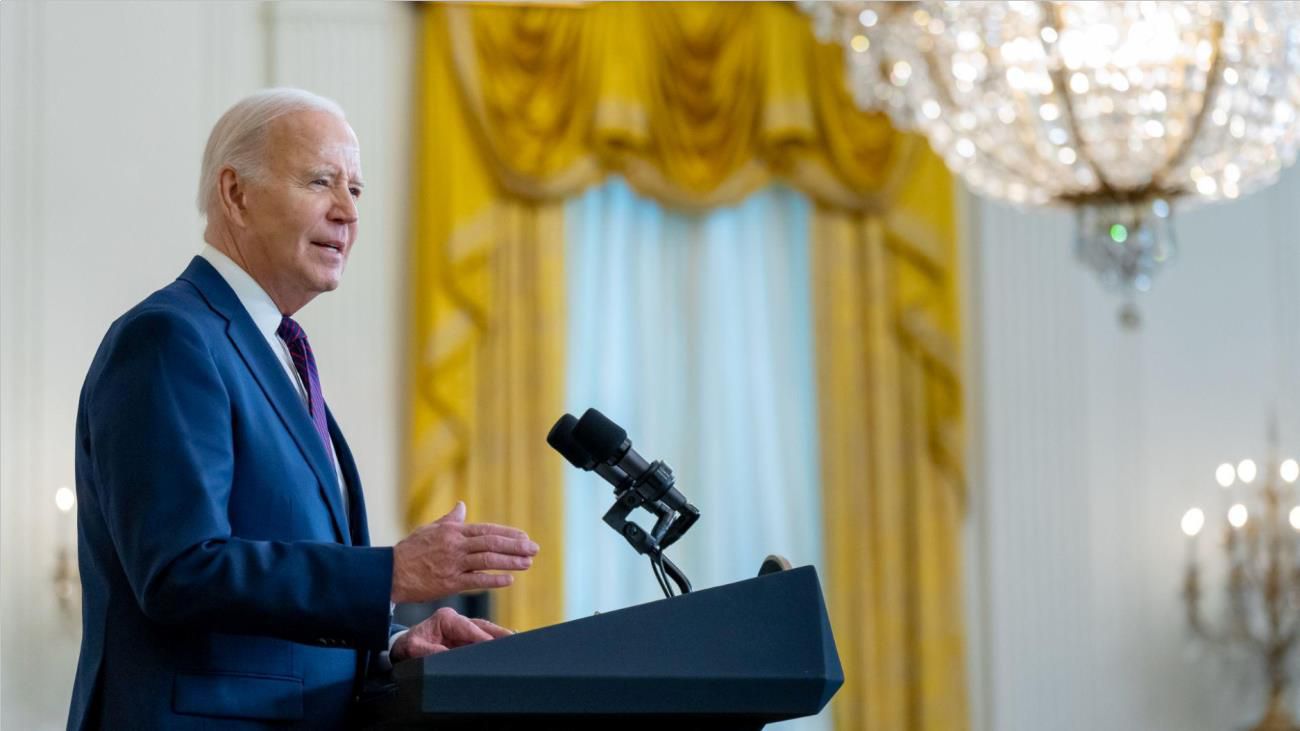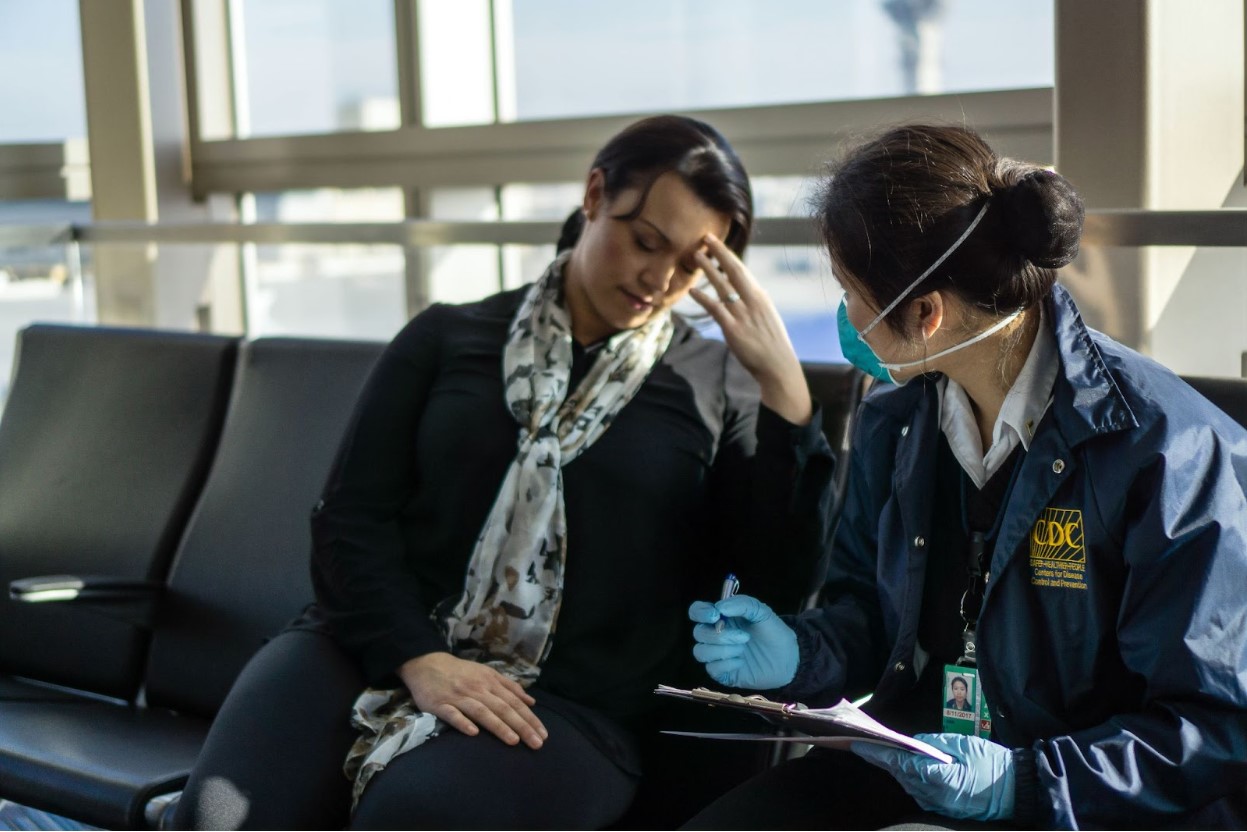‘My life gives people hope’: America’s First IVF Baby Urges for Continued Support for Procedure
On Dec. 28, 1981, Virginia witnessed a groundbreaking moment in reproductive medicine: the birth of Elizabeth Carr, America’s first baby conceived through in vitro fertilization (IVF). Her arrival marked a beacon of hope for individuals struggling with infertility.
Before IVF, many faced the bleak prospect of never having biological children. Elizabeth’s birth not only shattered these limitations but also introduced new possibilities in the realm of science and medicine, offering a new pathway to parenthood for many.
Armed Guards and National Attention
The birth of Elizabeth Carr was an event that captured the nation’s attention. The unprecedented nature of IVF led to heightened security measures, including armed guards stationed outside Judith Carr’s hospital room.

Source: Canva
This level of security underscored the controversial and groundbreaking nature of IVF at the time, reflecting the societal fears and ethical dilemmas that accompanied this new technology.
From IVF Baby to Advocate
More than four decades have passed since Elizabeth Carr’s historic birth, and she has grown to be a staunch advocate for IVF. Her journey from an IVF baby to a public figure in reproductive rights highlights the emotional and societal impact of the procedure.

Source: Chokniti Khongchum/Pexels
Elizabeth’s advocacy is fueled by her personal narrative, emphasizing to the Wall Street Journal the significance of IVF in her existence and for many others: ‘My life gives people hope, If my mother had not been told by her doctor about IVF, I would not be here.’ she said.
Facing New Challenges: The Alabama Ruling
The IVF community faces new challenges, particularly highlighted by a Feb. 16, 2024, Alabama Supreme Court decision that classifies frozen embryos as children. This landmark ruling has led to significant concern and hesitation, prompting two major clinics in the state to suspend IVF procedures.

Source: Katrin Bolovtsova/Unsplash
The legal landscape is now full of potential repercussions for reproductive medicine, affecting doctors’ willingness to practice and patients’ access to care.
Elizabeth Carr's Response to the Crisis
In light of the Alabama Supreme Court’s decision, Elizabeth Carr has voiced her concerns and is urging lawmakers to reconsider the implications of their actions.

Source: Edward Jenner/Pexels
Her involvement in the debate underscores the personal stakes and broader societal implications of defining frozen embryos as children. Carr’s advocacy is a call to action, reminding legislators and the public of the human stories behind IVF and the hope it provides to many.
The National Stage: A Platform for Advocacy
Sen. Tim Kaine invited Elizabeth Carr to President Joe Biden’s State of the Union address, symbolizing the importance of IVF in the national discourse on reproductive rights. This platform allowed Carr to represent the millions who have turned to IVF as a means to build their families.

Source: Public Domain/Wikimedia Commons
Kaine’s support for federal legislation on IVF access underscores the procedure’s significance, the need for protective measures, and the need to “fight to safeguard IVF access for generations of women to come.”
The Science Behind IVF
IVF involves retrieving eggs from a woman’s ovaries, fertilizing them outside her body, and implanting the resulting embryos into her uterus. This process offers hope to those unable to conceive naturally.

Source: @BlackrockNeurotech/Facebook
However, it’s a complex and often misunderstood procedure, involving careful coordination and medical expertise to increase the chances of a successful pregnancy, illustrating the delicate balance of life science at play.
Legal Precedents and Their Implications
The Alabama ruling is part of a growing trend of legal challenges to reproductive rights, sparked by shifts in the national legal landscape, including the 2022 Supreme Court decision to overturn Roe v. Wade.

Source: Freepik
This changing environment threatens to reshape access to IVF and other reproductive technologies, igniting fears that other states might follow Alabama’s lead, thereby restricting individuals’ options for starting families.
Voices of the IVF Community
Personal stories from the IVF community, like those of Gabby Goidel and Amanda Zurawski, shed light on the human impact of restrictive reproductive laws.

Source: Anna Moneymaker/Getty Images
These narratives highlight the diverse reasons families pursue IVF, from combating genetic disorders to overcoming infertility. Their experiences reflect the broader anxieties and challenges faced by many in light of legal uncertainties surrounding reproductive health care.
A New Trend?
Following the Alabama Supreme Court ruling, there’s been a noticeable trend of individuals transferring their frozen embryos to states with more favorable reproductive health care laws. However, many clinics have paused out-of-state transfers, leaving many patients worried and in a state of limbo (per NBC News).

Source: Freepik
This shift shows the direct impact of local legal decisions on personal and medical decisions nationwide, highlighting a growing concern among potential parents about the future of their reproductive choices.
Costs and Challenges
IVF is not only a medical procedure but also a significant financial and emotional investment. Costs can range dramatically, with additional fees for storing embryos.

Source: CDC/Unsplash
The legal uncertainties introduced by rulings like Alabama’s add another layer of complexity, potentially forcing patients to undergo more cycles or relocate, thereby amplifying the financial and emotional toll on those seeking to start families through IVF.
The Future of IVF and Reproductive Rights
As advocates like Elizabeth Carr fight for accessible and safe IVF treatment, the future of reproductive rights remains uncertain. The evolving legal and social landscapes pose new challenges and questions for individuals and professionals in the field.

Source: Freepik
Efforts to protect reproductive rights and increase access to IVF treatment will likely continue as more people speak out about their experiences, legal battles unfold, and advances in technology make the process more accessible.
